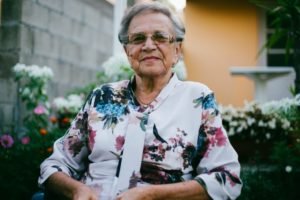Have you or your loved one been diagnosed with dementia?
 Getting a diagnosis of dementia can be a stressful life event, but understanding the diagnosis and available resources might help ease some of that stress.
Getting a diagnosis of dementia can be a stressful life event, but understanding the diagnosis and available resources might help ease some of that stress.
The term dementia doesn’t refer to just one specific disease, it refers to a group of diseases impacting the brain. Dementias have a number of symptoms that can affect memory, thinking abilities, communications, emotions, and social abilities to the point that they interfere with daily functioning. It is not a normal part of aging. Most older persons do not live with dementia.
The most common form of dementia is Alzheimer’s disease. Other types of dementias include but are not limited to vascular dementia, dementia with Lewy bodies, frontotemporal dementia, and Parkinson’s disease. Visit the Alzheimer’s Association to learn more about the different types of dementia.
Did you know the Medicare Annual Wellness Visit is free and includes a memory screening? Be sure to ask for your memory screening each year, and keep your brain strong with these suggestions. Different types of dementia affect the brain at different rates and in different ways, but overall, dementia progresses in a way that is unique to each individual. While there is currently no cure and limited medical treatments for most types of dementia, you can focus on ways to have meaning, joy, and quality in your life.
Things like personal circumstances, the people around you, and the environment in which you live, will affect your experience of dementia.
There’s more to the person than the dementia. People with dementia are a valuable part of the community. Many individuals living with dementia have found participation in a clinical trial to be a gratifying way to contribute to the community and to the growing body of research about dementia. You can find out more about participating in research in the Atlanta area by contacting the Alzheimer’s Disease Research Center at Emory University.
If you are part of the LGBTQIA+ community, the Research Inclusion Supports Equity (RISE) study is working to help ensure the LGBTQIA+ community is represented in Alzheimer’s and dementia research. Register today if you are an LGBTQIA+ adult with a dementia diagnosis or caring for someone with a diagnosis.
Where should I go for help?
Knowing where to go for help can be a large part of the challenge of processing a diagnosis of dementia. Many of the resources below offer more in depth information on the specific dementia diagnosis, as well as information on services available and support groups. You can also contact Empowerline for additional assistance.




